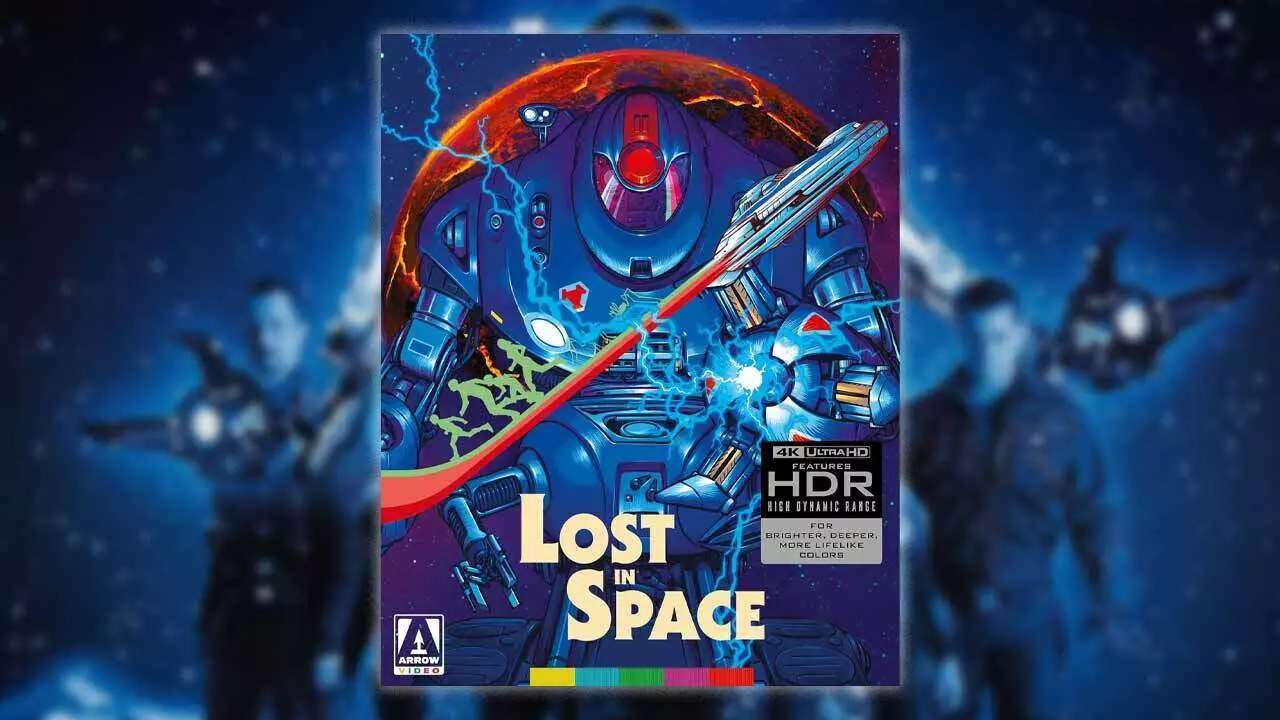The late 1990s marked a pivotal era for science fiction films that aimed to captivate audiences with groundbreaking visual effects and compelling storytelling. Among the standout titles was *Lost in Space* (1998), a film that sought to reimagine the beloved 1965 TV series for the modern big screen. Stepping into the director’s chair, Stephen Hopkins crafted a movie that balanced nostalgic reverence with innovative cinematic techniques. Though it may not have achieved blockbuster status at the time, the film has since garnered a loyal following, thanks in part to its ambitious visuals and charismatic cast, including William Hurt, Mimi Rogers, and emerging star Matt LeBlanc.
Why a 4K Rebirth Matters
The upcoming release of the *Lost in Space* Special Edition 4K Blu-ray isn’t merely a reissue—it’s a thoughtful revival that challenges viewers to reassess the film’s artistic value. The meticulous restoration from the original camera negatives, approved by Hopkins himself, ensures that the film’s visual grandeur is preserved. In an era where high-definition can breathe new life into classics, this edition elevates the film’s sci-fi universe to its intended glory, presenting the intricate spaceship designs and alien worlds with stunning clarity. It’s a reminder that behind its lively action sequences lies a film with artistic depth that deserves renewed appreciation.
Beyond the Visuals: Depth in Extras Reveals Artistic Intentions
The richness of the *Lost in Space* 4K set extends far beyond picture quality. It is a treasure trove for fans and scholars alike, featuring exclusive interviews with the key creative minds behind the film, such as director Stephen Hopkins and screenwriter Akiva Goldsman. These conversations provide a nuanced perspective on how the filmmakers approached blending elements from the iconic TV series with pioneering visual effects and storytelling innovations of the late ‘90s. The inclusion of behind-the-scenes featurettes, deleted scenes, and a detailed account of special effects construction demonstrates that this film was an ambitious venture that deserves respect—not dismissal.
A Reflection of Ambition in Sci-Fi Filmmaking
What sets *Lost in Space* apart from many of its contemporaries is its willingness to embrace bold visual storytelling and complex world-building. The film’s depiction of space travel, alien ecosystems, and futuristic technology was groundbreaking for its time—an era when CGI was still in its infancy. While certain scenes may appear dated now, the film’s imaginative scope still resonates. Its portrayal of a family navigating a distant galaxy echoes timeless themes of exploration, survival, and the resilience of human spirit. The new edition invites viewers to see this movie not simply as a nostalgic relic but as a bold experiment in cinematic science fiction.
A Personal Journey Toward Appreciation
Critically analyzing *Lost in Space*, I recognize that much of its initial reception was marred by high expectations and perhaps a failure to appreciate its visionary ambitions. The film’s faults—clunky dialogue, uneven pacing, or cheesy monster effects—are evident, yet they serve as a testament to its audacity. Its creative risks and technological ambitions mark it as a stepping stone in sci-fi cinema. This reissue is instrumental in shifting the narrative, encouraging viewers to view the film as a pioneering effort that pushed the boundaries of its era, rather than dismissing it as mere “dumb fun.” It’s a reminder that true appreciation often requires revisiting past works with a critical yet open mind.
Final Thoughts: A Rebirth to Inspire New Generations
The *Lost in Space* Special Edition 4K Blu-ray reaffirms that even flawed sci-fi classics can possess a timeless charm and significance. By meticulously restoring and archiving its making-of story and behind-the-scenes innovations, it champions the idea that appreciation deepens when we see a film in its intended format. Far from just a nostalgic throwback, it stands as a testament to the ambitious spirit of late ‘90s genre filmmaking—a movie that dared to dream big and inspire new generations of filmmakers and sci-fi enthusiasts alike. In doing so, it elevates its status from a cult curiosity to a noteworthy chapter in the ongoing evolution of science fiction cinema.

